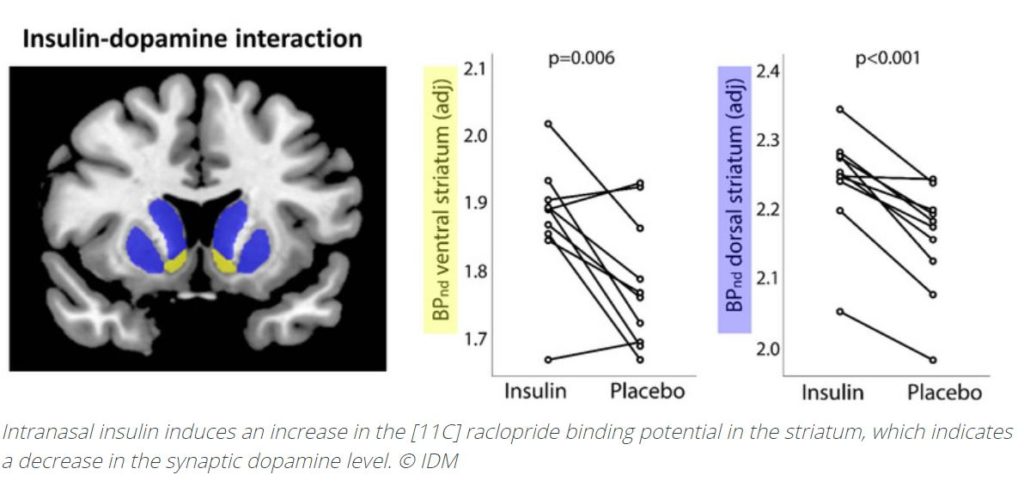
In the human brain, the hormone insulin also acts on the most important neurotransmitter for the reward system, dopamine. This was shown by researchers from the German Center for Diabetes Research (DZD) in Tübingen. Insulin lowers the dopamine level in a specific region of the brain (striatum *) that regulates reward processes and cognitive functions, among other things. This interaction can be an important driver of the brain’s regulation of glucose metabolism and eating behavior. The study has now been published in the Journal of Clinical Endocrinology & Metabolism.
Worldwide, more and more people are developing obesity and type 2 diabetes. Studies show that the brain plays an important role in causing these diseases...
Read More







Recent Comments